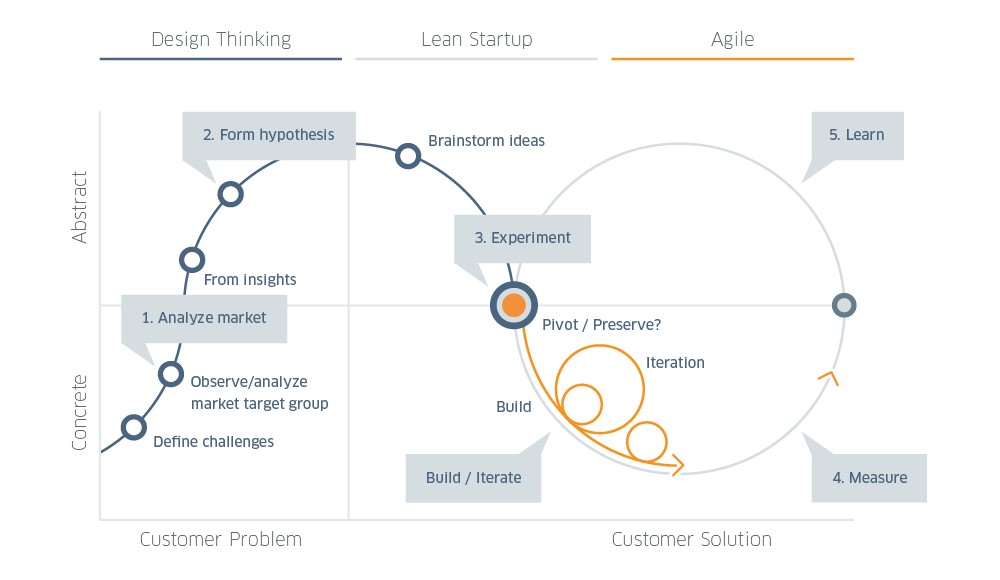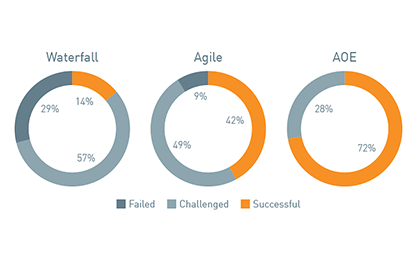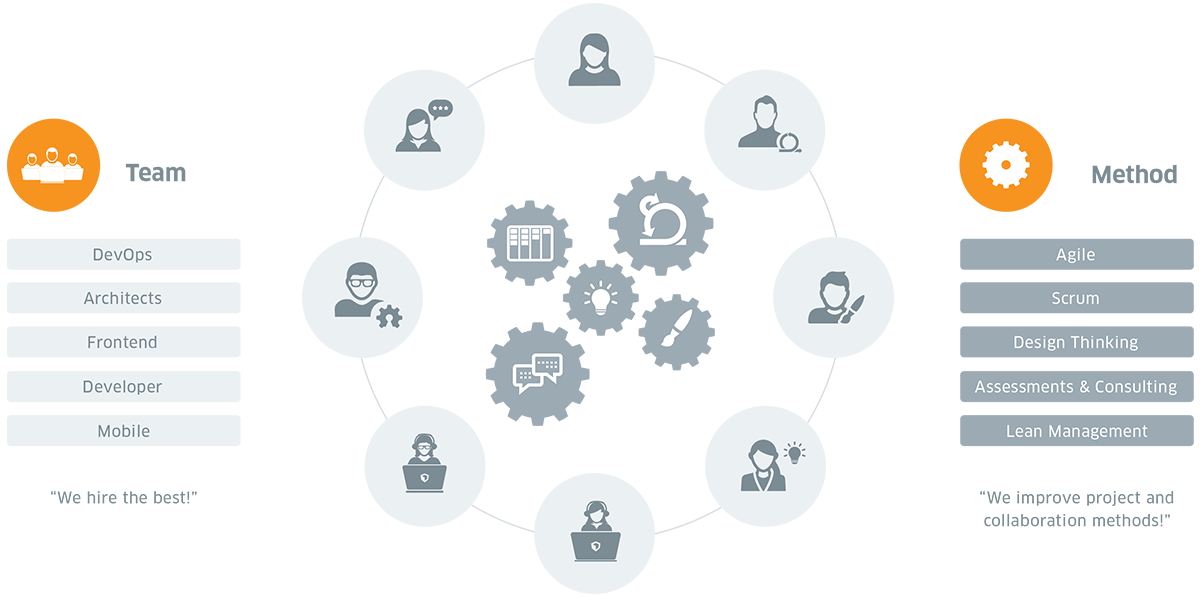Get in touch
Enterprise software projects have particularly high requirements because a large number of employees and departments work with the platforms and business-critical processes are affected.
We provide an overview of the technical and methodical requirements for Enterprise software and projects.
Enterprise projects are defined as extensive projects of large companies that require a great deal of effort, a complex structure, as well as a large number of business areas and critical business processes. In particular, they require technical expertise in the areas of IT infrastructure, scalability, performance and security, as well as methodological competence and experience in digitalization and fostering a culture of change.
Enterprise software is used to improve internal corporate processes and workflows. Many processes can be automated, made significantly faster and more cost-effective through digitalization. Enterprise software supports a wide range of departments of companies and supplies them with relevant information through numerous features.
Prerequisite for powerful Enterprise software is that it is compatible with the IT infrastructure of the company. IT infrastructures usually consist of a pool of standalone solutions, which are operated independently of each other.
Through the interconnection of internal solutions, companies benefit through perfectly coordinated systems, which communicate in an optimal manner with one another and thus reduce complexity.
Enterprise Software places particularly high demands on performance and scalability. For this, an appropriate infrastructure is required, including soft- and hardware, software architecture, testing and cloud services.
A critical factor in performance optimization is software optimization during traffic peaks. However, 44% of all companies fail to carry out tests that simulate software behavior in such cases.
Enterprise Software must work continuously at a consistently high level of quality and performance. In oder to ensure the highest possible level of reliability and error-free operations, the software must be designed for highest availability and load peaks.
Security for data and systems, monitoring and support are further prerequisites for Enterprise software.


Enterprise projects are about business-critical processes and applications that affect a large part of the company and employees. In addition to outstanding technical expertise, methodological competence and experience with change toward digitalization of organizations are especially important prerequisites for development in complex systems.
When implementing Enterprise software projects, structures in the company are redesigned, digitalized and automated. Accordingly, employees must be actively involved in the change process so that the altered processes and structures can be anchored in the corporate culture. In order to successfully structure the digital transformation of organizations, you need a clear strategy and must meet a number of requirements to develop and implement new digital business models.

In addition to technical competence, methodological competencies and Enterprise project experience are essential for complex developments projects in dynamic systems. At the beginning of the project, it isn’t possible to predict all project details reliably, since many requirements are still unknown and change during development. In complex projects, an iterative approach and flexible reaction to change is therefore crucial. Agile methods allow for early results and take changes into account from the outset.


AOE is an agile IT service provider specialized in complex Enterprise projects. In order to meet the requirements of Enterprise projects, we use agile methods to create optimal conditions for delivering functional software at the earliest possible date and to able to react quickly and flexible to changes. With our Team & Method Approach we achieve above-average results and excellent customer satisfaction in collaboration with our clients.